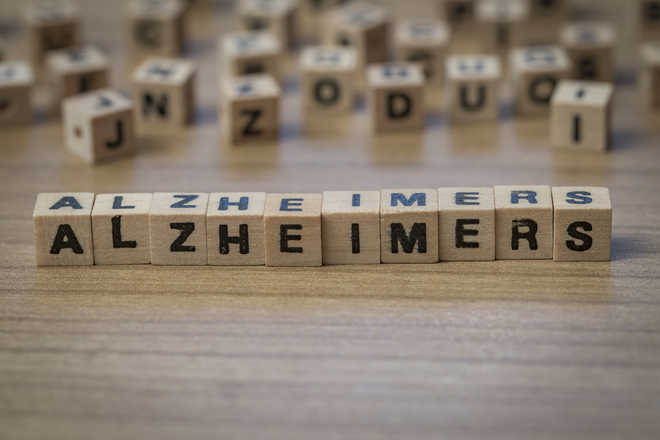
Photo source: Thinkstock
Washington
In a first, scientists have identified and successfully erased the effects of a key gene that significantly increases the risk for Alzheimer's disease.
Having one copy of the apoE4 gene more than doubles a person's likelihood of developing Alzheimer's disease, and having two copies of the gene increases the risk by 12-fold, as compared to the most common version of the gene, apoE3.
The apoE4 gene creates a protein of the same name. The apoE4 protein differs from the apoE3 protein at only one point, but that single change is enough to alter its main structure and, thus, its function, researchers said.
Researchers from the Gladstone Institutes in the US were also able to erase the damage caused by apoE4 by changing it, with a small molecule, into a harmless apoE3-like version.
Most Alzheimer's research and drug development are done in mouse models of the disease. However, a succession of clinical trial failures has spurred scientists to turn to other models.
Instead, researchers decided to use human cells to model the disease and test new drugs. They were able to examine, for the first time, the effect of apoE4 on human brain cells.
To do so, they created neurons from skin cells donated by Alzheimer's patients with two copies of the apoE4 gene, as well as from healthy individuals who had two copies of the apoE3 gene.
The researchers confirmed that, in human neurons, the misshapen apoE4 protein cannot function properly and is broken down into disease-causing fragments in the cells.
Researchers then examined brain cells that did not produce either form of the apoE protein, and the neurons looked and functioned just like cells with apoE3.
However, if they added apoE4, the cells became riddled with pathologies related to Alzheimer's disease. This discovery indicates that the presence of apoE4—and not the absence of apoE3—promotes the disease.
Finally, researchers looked for ways to repair the abnormalities caused by apoE4. They developed a class of compounds that can change the structure of the harmful apoE4 protein so it resembles the innocuous apoE3 protein, referred to as apoE4 "structure correctors".
Treating human apoE4 neurons with a structure corrector eliminated the signs of Alzheimer's disease, restored normal function to the cells, and improved cell survival. PTI



























